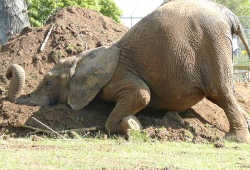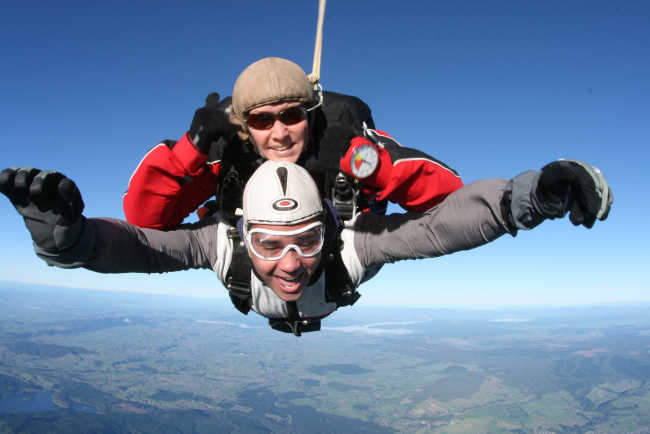Dorothy – 25/9/98
An interview with Jackie Steincamp.
 |
| Jacqueline Steincamp |
The M.E./ C.F.S. Group (Canterbury) Inc. has recently launched its Website. Health researcher, Jackie Steincamp, has led the team of committee members in preparing the material for the Website. It offers the first steps towards the self help which is vital for improving the health of Myalgic Encephalomyelitis (M.E.) sufferers. Others may put sufferers on the right path, but self help is vital. The brain and the body are one, and if the brain isn’t involved in looking after the body the healing won’t come right.
For many New Zealanders Jackie Steincamp’s name is synonymous with research into serious health concerns. But Jackie does not stop at research. She is well-known for her writing on health problems and health-promoting solutions to those problems.
Listener article about Tapanui flu – M.E. (C.F.S.) M.E. (C.F.S.) is said to change the lives of those who suffer from it. It can also change the lives of those who write about it. according to Jackie. “Going to Tapanui to write an article about the Tapanui flu for the Listener changed my life,” she says.
It all started in 1983 when she was writing for the New Zealand Listener and was sent to Tapanui in North Otago to research what was then called Tapanui flu. Previously she had refused to touch health issues. She was writing regularly for the Listener, Thursday, Eve, and Designscape. She had excellent health herself and was not remotely interested in being a health researcher or journalist.
However, in Tapanui Jackie found so many ill people with such weird symptoms and such peculiar aspects to their illness that it totally caught her imagination and aroused her curiosity. At that stage Tapanui flu was being called ‘mass hysteria’ by the medical establishment. Jackie saw adults and children who were so grievously affected that she became determined in her own mind that there was a lot more to it than that. She was convinced that there was something there in Tapanui – was it in the environment? … was it in people’s bodies? – that was causing such devastating symptoms.
At that time there was a simplistic solution that had been taken up by the Otago Medical School – that the problem was caused by the coxsackie virus. People were not asking why the population should fall prey to a virus, nor did Jackie’s article look at underlying causes. It covered the symptoms and the suffering of individuals, and the possibility that a virus might be responsible. It was a valuable resource for all those concerned about the problem and many copies were requested from The Listener.
Jackie undertakes further research. Jackie left Tapanui with a profound feeling of disquiet and apprehension about what had been happening to those people who had previously been healthy. She had a strong feeling that what was happening there could be relevant to all of us.
She joined the Canterbury Medical Library, where at that time membership was available free to individual researchers and journalists, and started to research M.E. She also used information from the Open Forum for Health Information Association and from M.E. groups around the world. Her New Zealand publisher, Christine Cole Catley, herself a sufferer, also provided valuable material, as did Professor Dr Campbell Murdoch of Otago Medical School.
Jackie says: “I learned that the problems associated with M.E. happen in almost all chronic degenerative diseases. However, there is something in the M.E. immune system that stops the M.E. sufferer from developing a more specific disease. An aspect of the immune system is over-activated and while this causes a great deal of strife it also protects the sufferer from developing the overwhelming set of symptoms typical of a specific illness such as multiple sclerosis, Parkinsons, various gut conditions and migraine. Symptoms typical of these illnesses occur, but are not focussed towards any particular illness.”
Sufferers feel very ill but in some way are protected from the above illnesses. Interferon is a natural chemical in the body which is protective against colds. The levels of interferon in the bodies of M.E. sufferers are so high, twenty five times the normal level, that they do not catch colds. Centres in Britain seeking a treatment that would protect people from catching colds did tests using interferon. The test patients given doses of interferon did not catch colds, but developed M.E. type symptoms. M.E. sufferers who catch colds know that they are getting better. Jackie describes M.E. as “a very great disturbance of body functioning”.
Book on her research published As a result of her research between 1984 and 1986 she produced a book called “Overload: Beating M.E. (The Chronic Fatigue Syndrome)”. It was published in England by Fontana, and was launched at the Beehive in 1987 by the Associate Minister of Health. Despite continued interest in the book it has not been reprinted by the publishers, but it is available in libraries. Other researchers have published so-called ‘new research’ over the years, but the information has largely confirmed what was already in Jackie’s book.
Triggers for M.E. One of the aspects of the research that puzzled Jackie was that no matter what triggers for M.E. she studied – chemical, viral, dietary, stress, or radiation – all had much the same effect on the immune system. The fact that the results were the same suggests that a similar mechanism was involved.
Action of free radicals The problem appeared to be reversible, but not by medicine. Jackie believes that the mechanism of damage is virtually the same from all those triggers, and is the action of free radicals. She stresses the importance of our strengthening our antioxidant protection. The attack from free radicals is growing worse all the time. In modern civilisation we are exposed to increasing chemicals in the atmosphere and in processed foods, increasing levels of UV radiation due to the thinning of the ozone layer, increasing electromagnetic radiation and increasing stress.
Role of antioxidants Jackie noted that many people in Tapanui come from a Scottish background. The Celts in particular appear to have poor antioxidant defences. The vitamin C in their bodies seems to be damaged very readily by free radicals so they need enormous amounts of vitamin C. This may be due to the selenium status which is very important in vitamin C and antioxidant protection. The soil in Scotland is very low in selenium and trace elements, so after generations of people have been brought up in the low selenium environment Scots are very prone to M.E. In the soil in Tapanui also there is a very low level of selenium and trace elements.
Some people have better natural antioxidant protection than others. It seems that people with a Mediterranean background have better protection. People with a Scottish background need to be particularly careful about antioxidant protection.
Assessing levels of antioxidant protection Some hospital laboratories do tests for levels of glutathione. This can be a good indicator of the levels of antioxidant protection. However, without laboratory tests we can ask ourselves some pertinent questions. Do we sunburn badly? Do we catch colds frequently? Is our general state of health good? Do we tire very easily?
Jackie believes that we all need to do is watch the vitamin and mineral levels in our diet. We need to ensure that we are eating a minimum of foods with free radicals or food that fosters free radicals – which means a diet which is low-fat and includes as many organic foods as possible. Multivitamin and specialised mineral and trace element supplements can be very helpful. New Zealand’s soils are poor with mineral deficiencies and imbalances all of which are becoming more severe over time, so even if we eat organic food we are not getting the full complement of nutrients we need.
The role of stress We should be trying to reduce the levels of stress in our lives. Our minds are not relaxed. To use Jackie’s own words, “Research shows that stress can cause the most appalling free radical storms within the body with natural chemicals that we produce within our bodies, and when our stress levels are high we are really blasting our bodies with free radicals. Relaxing through meditation or prayer can provide protection against much in the world outside us.”
Outside environmental influences Ouruhia, a small country settlement not far from Christchurch city, has come into the news recently because so many people there are suffering from ill health, with about a 20% incidence of M.E.(C.F.S.) in the area. It has been suggested that the illness is due to electromagnetic radiation from radio towers transmitting FM signals.
Jackie has already written for NZine about the problems of the Ouruhia people. See
Electromagnetic Radiation – Out Ouruhia Way.
Watch for further news of research at Ouruhia in NZine.
Health care imperative for us all Jackie believes that we ALL need to take particular care of ourselves today because there are too many negative influences in our environment for most of us to be able to cope with them without becoming unwell.
See the
MECFS Website.




